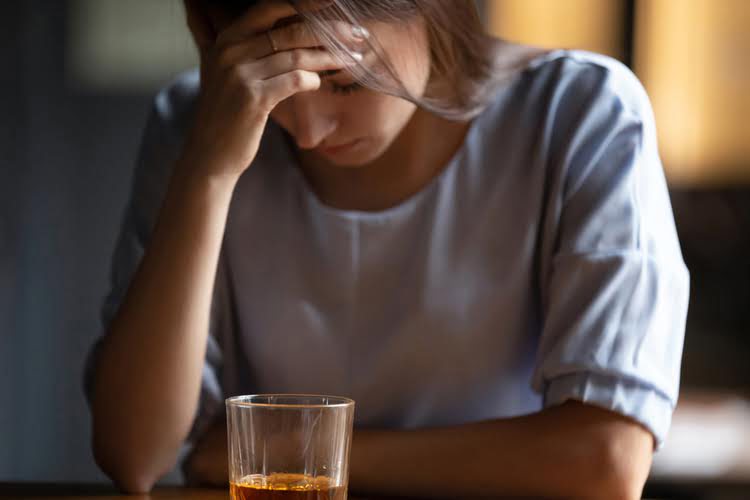When you stop drinking, your brain may rebound by increasing REM sleep, sometimes leading to an overload of vivid dreaming or even nightmares. This REM sleep rebound can be disruptive, leading to more fragmented sleep and daytime fatigue. REM sleep – the dream-stage of sleep, where most restorative processes occur – is adversely affected by alcohol.
- If you want to cut down, it can help to have several drink-free days each week.
- Don’t drink too much water—you’ll just wake up through the night to go to the bathroom, time you could be sleeping.
- Recovering alcoholics report that during the initial steps of sobriety, keeping busy was one of the most successful ways to stay sober and get enough sleep.
- If you’re in recovery and having sleep problems, the best approach is for you to discuss the situation with your doctor.
- One of the most restorative hangover remedies you can try is simply to get more sleep.
During Acute Withdrawal
The disruption of your sleep stages can occur even with small amounts of alcohol. Would one experience these alcohol withdrawal symptoms if they drank 2 to 3 drinks a night and then quit cold turkey? I have recently decided to quit in order to cut out my sugar in an effort to better my cholesterol.
Common Withdrawal Symptoms When Quitting Alcohol
If you want to understand why alcohol has a contradictory effect on your sleep cycle, it can help to think about things in terms of sleep stages. Drinking alcohol reduces your sleep onset latency (SOL), or the amount of time it takes to fall asleep. This can seem like a good thing at first, but https://mesoestetic-th-shop.com/alcohol-use-disorder-diagnosis-and-treatment-6/ it doesn’t paint the whole picture of what happens to your body throughout the night.
Description of Alcohol-Induced Sleep Disorder
Light is the primary stimulus involved in synchronizing an organism’s internal rhythm in the circadian clock with the external environment. In addition to light, other cues such as physical activity or feeding are considered as non-photic cues that can be used to reset the circadian clock. Non-photic phase-resetting is the process of shifting and/or synchronizing the circadian clock using non-photic stimulus. The circadian clock may modulate sleep-wake cycle with the help of melatonin. One of the primary reasons for hangover insomnia is the rebound effect on neurotransmitters in the brain.

Week Course – Mastering Supplements For Alcohol Recovery:
Doing the emotional work of recovery has ripple effects throughout your entire life, including your physical health. Another option is to consult a mental health specialist, particularly one with experience treating substance abuse and addiction. If you can book with someone specializing in sleep disorders, do that. If you experience insomnia in sobriety, there are things you can do to manage your insomnia on your own, as well as with the support of a medical professional. The answer to this question depends on a number of factors including how much you drank, how long, genetics, overall health, and underlying mental health conditions. Yet, plenty of evidence suggests, lifestyle adjustments, practicing good sleep hygiene, and seeking professional help can counteract this.
Wait Between Drinking and Bedtime

It also offers a more personalized approach to treatment, with individual therapy sessions, group therapy, and holistic therapies tailored to each individual’s needs. There’s no need to swear off alcohol entirely, but timing your drinks can be the difference between sleeping through the night and tossing and turning. If you want to cut down, it can help to have several drink-free days each week.
Consequently, there’s an uptick in wakefulness at times when sleep should naturally occur. It’s a pendulum that Twelve-step program swings back with a vengeance, causing sleep woes. Quit alcohol, and your body begins to readjust without its habitual depressant. This recalibration process can lead to a collection of symptoms known as alcohol withdrawal.
- By making these adjustments and seeking appropriate medical care, you can improve your sleep and overall well-being.
- If you think your drinking may be impeding your sleep or overall quality of life, speaking to your doctor or therapist is a great first step.
- If you choose to drink, be aware of the cancer risks, aim to drink less often and have fewer drinks.
But its effects can backfire as your body moves through its later sleep stages, making you feel tired and sleep-deprived in the long run. If you’re dependent on alcohol, it’s important to detox under medical supervision. Medical professionals can help you manage alcohol withdrawal and insomnia, and set you up for success in recovery. Exercise regulates your natural sleep-wake cycle8 and reduces withdrawal-related anxiety. Listen to your body, start slow, and gradually increase intensity as you feel stronger.
Caffeine and Sleep
Some people experience post-acute withdrawal syndrome, or PAWS, which can last for several months. Having bulletproof sleep hygiene can also help you fall and stay asleep, and this is even more important if you’ve had a drink. RISE can tell you when to do 20+ sleep hygiene habits at the time that makes them the most effective for you. We’ve covered more on how long before bed to stop drinking alcohol here. If you think your drinking may be impeding your sleep or overall quality of life, speaking to your doctor or therapist is a great first step.
Physical Activity and Sleep
Every person responds differently to alcohol, and some individuals become so accustomed to drinking it, that it slowly deteriorates their quality of life. Quality of sleep is usually one of the first things to suffer – your body continues to metabolize the alcohol especially if you drank and went straight to bed. People in alcohol recovery take a long time to fall asleep, have problems sleeping through the night, and feel that their sleep is not restorative. They may fall asleep easily, but excessive alcohol use disrupts their sleep during the latter part of the night. However, those with a history of heavy drinking may experience lingering insomnia for several months due to Post-Acute Withdrawal Syndrome (PAWS). One of the best ways to stabilize your sleep after quitting alcohol is by supporting your adrenal system, which controls cortisol levels.
Then I received the unexpected gift of sleeping in a room with blackout curtains, a breezy ceiling fan, and no baby monitor. This sounds obvious, but many of us do not have bedrooms that promote sleep. It’s your responsibility to do everything you can to sleep well, which often translates to forgoing guilty pleasures or habits that contribute to your sleep disruptions.
Instead, if you find yourself unable to fall asleep after about 20 minutes, get out of bed and engage in a quiet, relaxing insomnia after stopping drinking activity until you feel sleepy. This approach helps prevent associating your bed with wakefulness and anxiety about not being able to sleep. Rehydration is a crucial first step in managing hangover symptoms and promoting better sleep. Alcohol’s diuretic effects can lead to significant fluid loss, contributing to many hangover symptoms, including difficulty sleeping.
